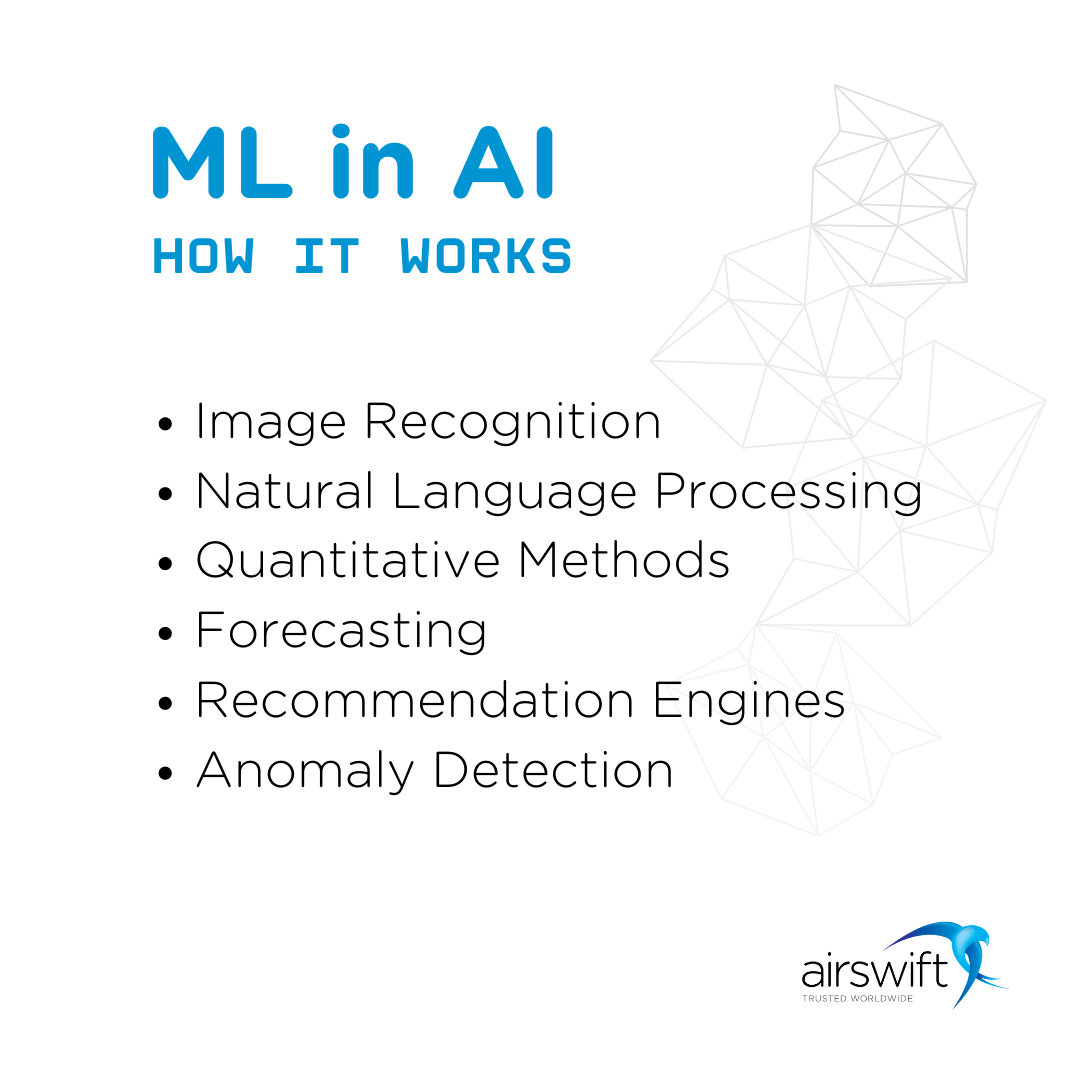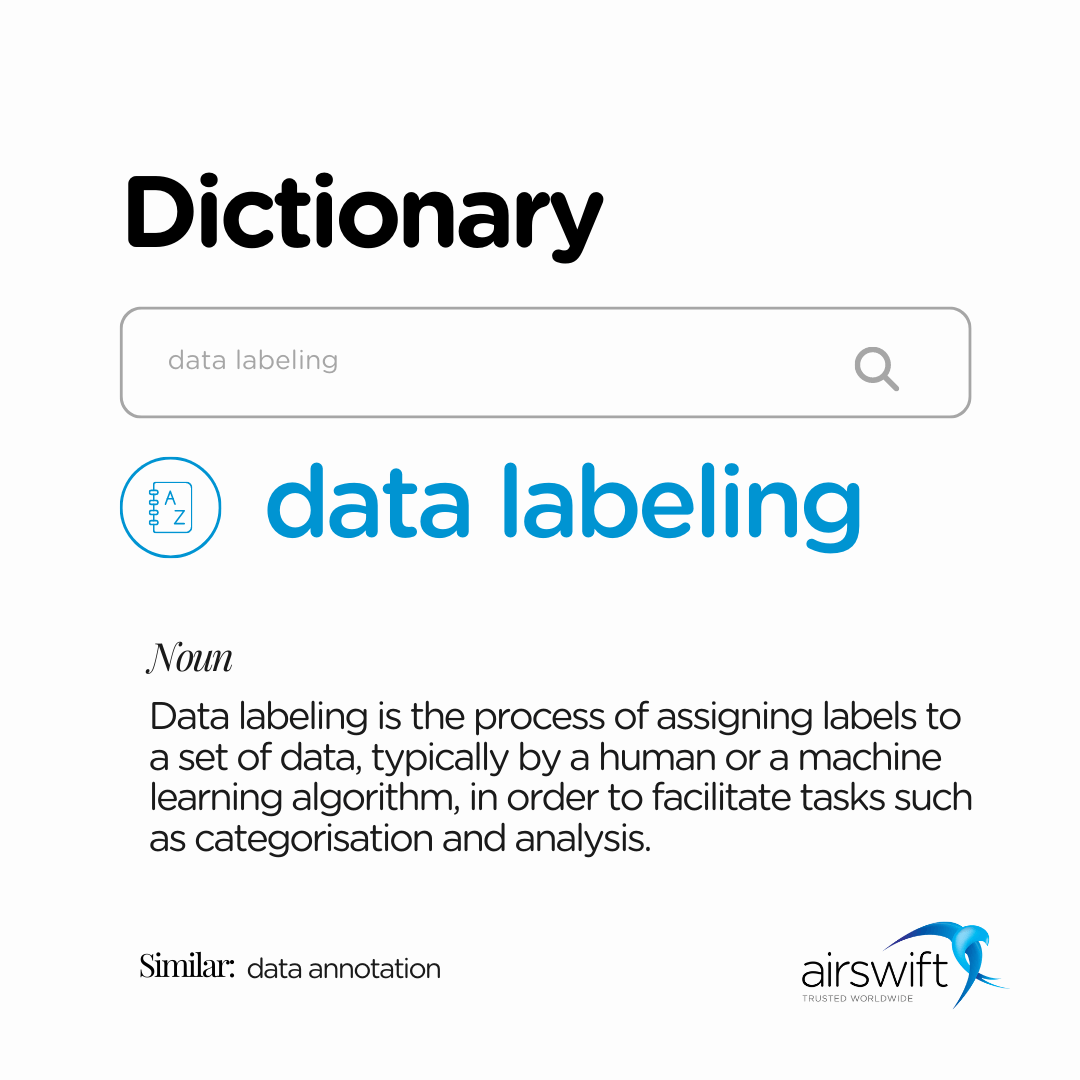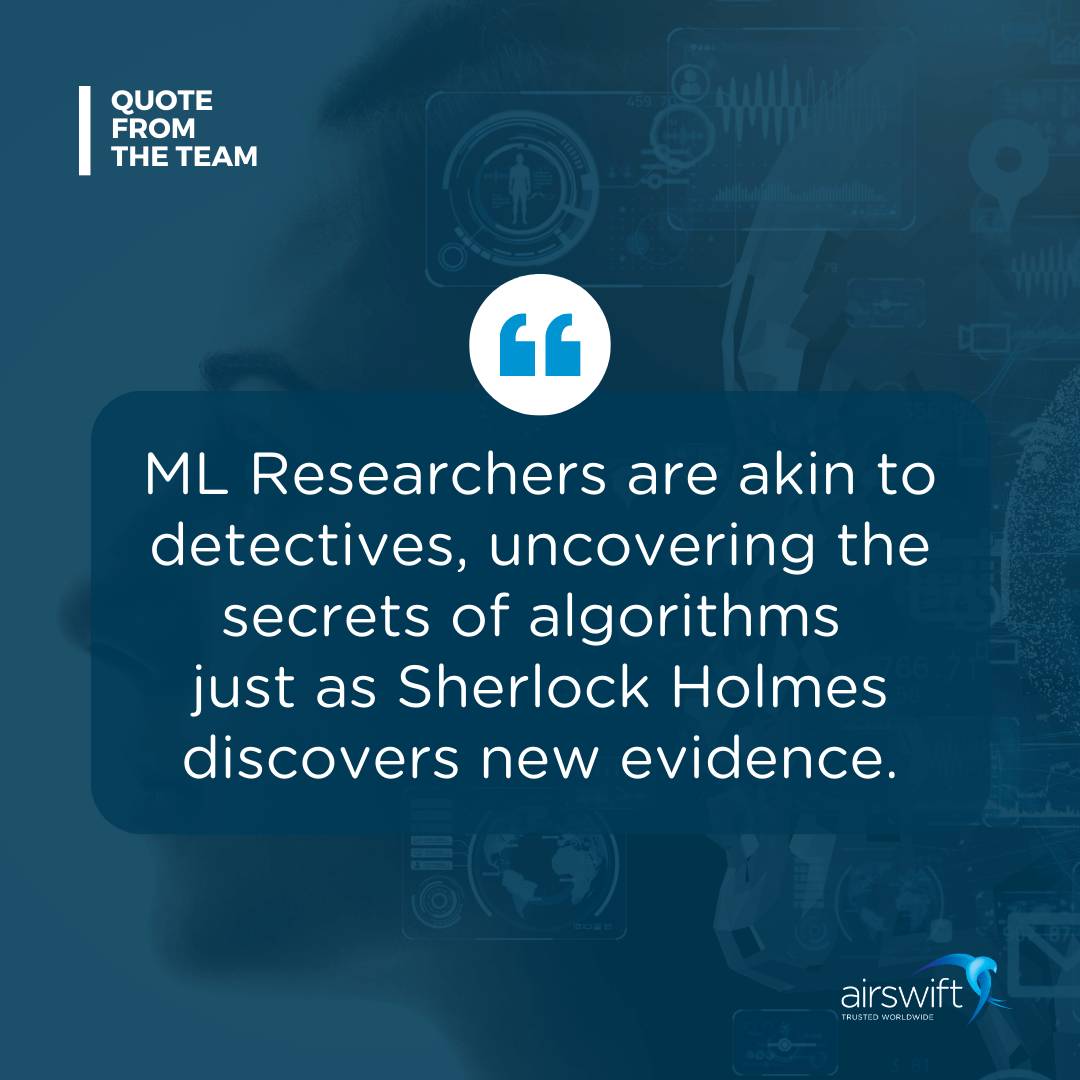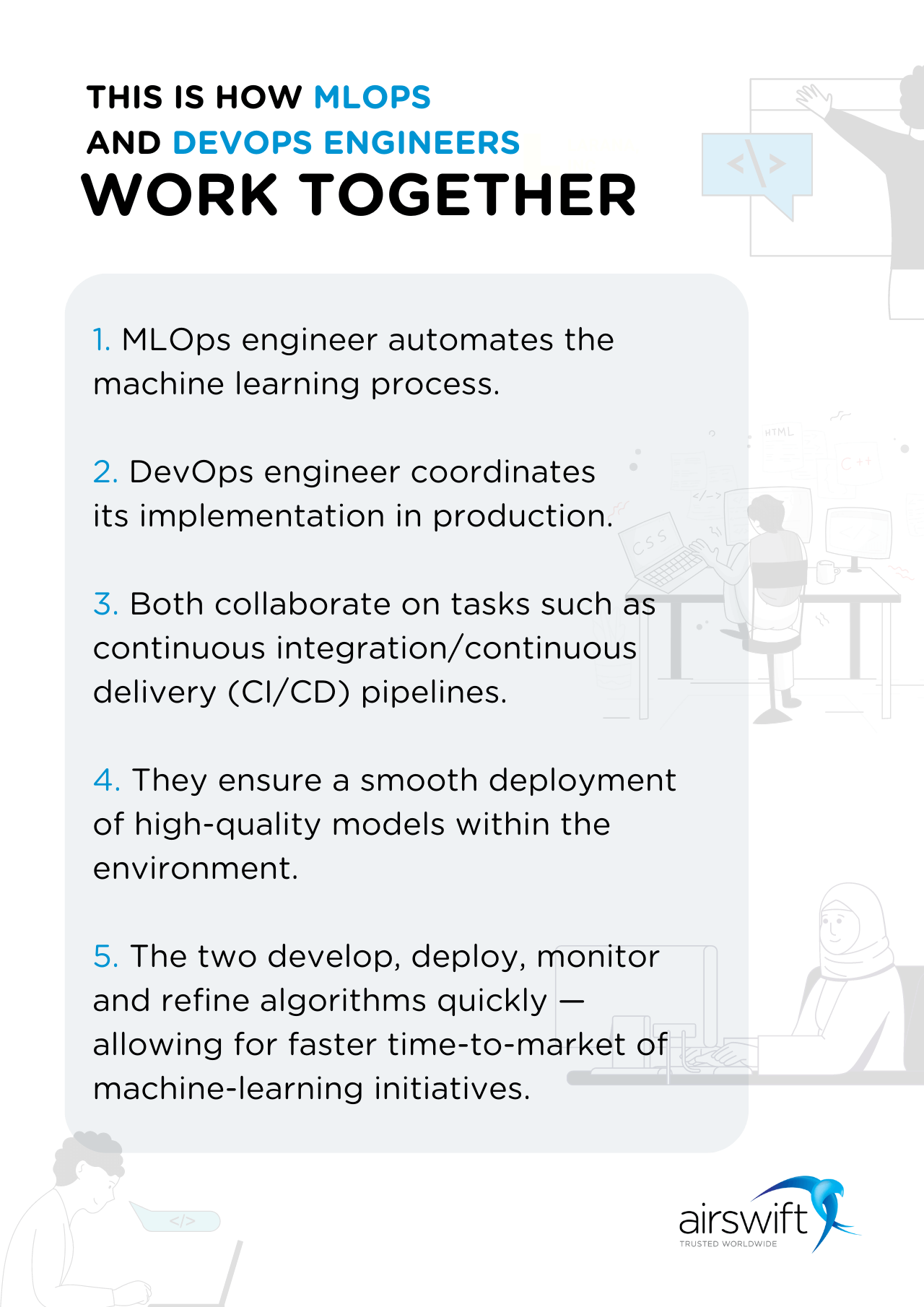
By
Raphael Santos
February 6, 2023
Updated
September 12, 2023
Source: Frame Stock Footage/Shutterstock
Uncover the latest trends in machine learning roles to grow your data analytics initiatives.
Machine learning is one of the fastest-growing fields in every industry right now, not just tech, and is quickly becoming an essential part of many organisations' operations. There are dozens of roles that are in-demand but which ones should you focus on?
This article will provide a detailed overview of some of the most in-demand machine learning roles by the market and share an understanding of how these jobs fit in a high-performance machine learning team.
Creating a successful machine learning team requires thoughtful consideration when it comes to staffing and skill requirements. In this article, we’ll take an in-depth look at the different roles within an ML team, as well as provide advice on building a strong one.
1. What is the job of a machine learning specialist?
3. Learn all about the most in-demand machine learning roles
3.1. Machine Learning Engineer
3.1.1. A ML Engineer speciality: data labeling
3.2 Data Scientist
3.3. Product Manager
3.4. Data Engineer
3.5. Machine Learning Researcher
3.6. DevOps Engineer
3.7. MLOps Engineer
4. How do these roles work together?
4.1. MLOps and DevOps engineers are a good match
5. The future for machine learning roles
5.1. Green transition and green talent
5.2. Scaling AI Projects: It's time for AI Architects
6. We got the right talent for the exact role you need
What does a machine learning specialist do?
A machine learning professional is responsible for designing, developing, and maintaining machine learning systems. This can include tasks such as feature engineering, model development, optimization, deployment and continuous monitoring of the models.
 Source: Frame Stock Footage/Shutterstock
Source: Frame Stock Footage/Shutterstock
They are also expected to have an understanding of databases, software engineering principles and data visualisation tools. ML is a rapidly changing field with constantly improving techniques and algorithms that have the ability to mimic human intelligence in order to complete tasks and solve problems.
Machine learning roles are highly sought after because they are able to quickly identify patterns in large datasets and provide business insights or solutions in areas where traditional methods would be too time-consuming or costly. Companies from all industries recognise the value of machine learning for streamlining processes, automating tasks, increasing efficiency, improving customer service, and more.
What is the role of ML in AI?
Machine Learning is an integral part of modern artificial intelligence (AI). It is a branch of AI focused on the development of algorithms that can learn from data and make predictions about future events.
Machine learning algorithms vary in complexity but essentially, they are able to extract pattern and knowledge from data automatically, without relying on any human input.

In addition, machine learning can be used to address problems such as image recognition, natural language processing, forecasting and more. In order for artificial intelligence systems to be truly useful and reliable, they must integrate machine learning algorithms into their systems.
Learn all about the most in-demand machine learning roles
Machine Learning Engineer
A Machine Learning Engineer is a specialist in the field of machine learning who designs, develops, tests and deploys predictive models for business applications.
This professional needs to possess expertise in coding and statistical modelling techniques along with knowledge of appropriate software tools. Plus, a ML engineer typically has analytical skills to extract meaning from large amounts of data and design experiments to test hypotheses. Knowledge of how to use data visualisations such as Tableau or PowerBI is also helpful in this career path.
Good communication skills are important, as is clear problem solving ability when interacting with other stakeholders involved in the project.
A ML Engineer speciality: data labeling
Machine learning engineers who specialise as data labelers are responsible for labeling and organising data sets. They use algorithms to identify patterns in the data, and then apply labels to the data points. This helps machine learning models to more accurately interpret the dataset by assigning relevant categories to all the inputs and outputs.

Data labelers, also known as data annotators, must have detailed knowledge about the classification of each object within the given context to help train the model for more accurate predictions.
They usually use machine learning algorithms to tag objects in images and videos with labels, timestamps and other metadata. Once labeled, these images can be used by businesses or developers looking to create software related applications like AI-powered facial recognition systems or autonomous vehicle navigation systems.
By working together with data annotation teams, data engineers and scientists can create more efficient models and achieve better results from the use of large datasets.
Data Scientist
Data Scientists are professionals who are skilled in the analysis of data. They combine knowledge from multiple fields such as statistics, computer science and machine learning to solve real-world problems.
A Data Scientist must have strong programming skills, particularly in Python, JavaScript and SQL. Further, they need to be fluent in Statistical Analysis such as Regression Analysis, Classifier Evaluation and Model Training.
Additionally, a Data Scientist needs a good understanding of Big Data technologies such as Hadoop and Spark for data exploration tasks. Finally, the ability to communicate results clearly through graphical tools, like the ones already mentioned in other roles, Tableau or PowerBI, is essential for the success of a Data Scientist.
Product Manager
The Product Manager is responsible for leading the development and deployment of products powered by machine learning. They need to have experience in product design, deep knowledge of relevant technologies, in-depth problem-solving skills, and commercial acumen.
They also must understand customer needs and collaborate with data science teams to develop high-quality models. And they need excellent communication skills to bridge the gap between stakeholders from different fields such as engineering and marketing.
A Machine Learning Product Manager job thus requires balancing a number of priorities while offering innovative solutions backed by smart data use.
Data Engineer
Data engineers are responsible for building and maintaining systems that capture data from various sources, organize it effectively, and store it in databases and data lakes.
Data engineers must also be well-versed in software development tools such as Java, C#, Python and others, as well as understanding various database platforms like Oracle, MySQL or MongoDB. They must also have a thorough knowledge of security protocols which will help them safeguard collected data against unauthorized access or manipulation.
Machine Learning Researcher
A Machine Learning Researcher is a highly skilled worker who studies the field of artificial intelligence (AI) and the development of computer algorithms that are able to learn from themselves.
They must have a deep understanding of mathematics, be proficient in coding languages such as Python, Java, and C++, have exceptional communication skills, understand data analysis methods, and be comfortable working with complex problem-solving techniques.

Machine Learning Researchers must also remain up-to-date on the latest AI tools and technologies in order to stay ahead of the competition in their field.
DevOps Engineer
DevOps engineers are an essential part of any machine learning team as they are responsible for ensuring that the applications and systems used to deploy machine learning models are running smoothly. They must have a deep understanding of the underlying infrastructure, including cloud computing platforms such as AWS or Azure, and be able to configure and maintain them in order to ensure optimal performance.
DevOps engineers must also be well-versed in scripting languages such as Bash, Python or Ruby and be able to automate tasks related to the deployment of machine learning models. Additionally, they must have a good understanding of security protocols and be able to set up authentication systems that protect the data from unauthorized access.
Finally, DevOps engineers are also responsible for monitoring the performance of the applications and systems used for deploying machine learning models and ensuring that they are running optimally.
MLOps Engineer
A MLOps professional is a person responsible for maintaining and optimising the workflow of machine learning tasks in an organisation. They can handle tasks such as building and testing models, deploying new models to production, and automating model-management processes through CI/CD processes.
The skills that MLOps professionals need include:
- Knowledge of machine learning frameworks, such as Tensorflow and PyTorch.
- Familiarity with cloud computing services on platforms such as AWS or Azure.
- Fluency with regular software engineering languages like Python, Java, and Ruby.
- Experience developing and deploying ML models.
- Competency in data engineering concepts like relational databases, ETL pipelines, batch processing, and streaming technologies.
- A working understanding of algorithms and deep learning architectures.
How do these roles work together?
Those different machine learning roles contribute to the larger goal of creating effective predictive models and ML solutions. Let's take for instance a team with data engineers collecting unstructured data and cleaning it up data, then if you look at the other side of your team's desk, you'll see data scientists interpreting the results — using different algorithms to explore trends and build models.
Looking more closely at this teamwork, you'll be witnessing machine learning engineers creating production-ready software by deploying a trained model into a real-world environment.
The team members collaborate closely together as they rely on each other's skills and expertise to achieve their goals.
MLOps and DevOps engineers are a good match
An MLOps engineer and a DevOps engineer can fit well together in a machine learning team as they provide complementary skills. The MLOps engineer can focus on automating the machine learning process, while the DevOps engineer can help coordinate its implementation in production.
Furthermore, they can collaborate on tasks such as continuous integration/continuous delivery (CI/CD) pipelines, which are essential for successful machine learning applications.

Both engineers should strive to ensure the smooth deployment of high-quality models within the company's environment. So, together these roles form an agile team that can develop, deploy, monitor and refine algorithms quickly — further allowing for faster time-to-market of machine-learning initiatives.
The future for machine learning roles
The future job prospects for machine learning roles are incredibly promising. As automated systems become more and more complex, machine learning engineers will be in high demand. And this workforce will need to use their expertise to find solutions for new business realities.
Green transition and green talent
The world is undergoing a major shift towards green and sustainable growth as countries look to reduce their environmental impact. But this shift will not happen successfully, or quickly, without the help of technology – specifically machine learning.
As such, there is a growing demand for skilled professionals who understand both the fundamentals of machine learning technologies as well as their application within the context of green technologies. That's why we developed a whitepaper called "Green tech talent required to boost net zero", in which we analyse the profile of the new workforce for this new green global economy. Download it for free in our website.
 Source: Frame Stock Footage/Shutterstock
Source: Frame Stock Footage/Shutterstock
Scaling AI Projects: It's time for AI Architects
As machine learning projects become more complex, organisations need qualified professionals to assist in the scaling of successful AI solutions.
AI Architects can create a strategic roadmap for AI initiatives, assess and implement the most appropriate technologies to help companies scale their AI initiatives.
AI architects serve as the mediators, strategists, and supervisors of an AI architecture. They can also develop systems to bridge the gap between data science/engineering expertise and automation applications, in order to oversee and amplify AI-powered projects.
Additionally, they may also suggest solutions to improve the overall quality of machine learning models through improved processes such as versioning control and performance metrics tracking.
And last but not least, AI Architects can offer guidance on ethical AI practices and collaborate with other teams on new projects to bring these technologies to various enterprise platforms.
We got the right talent for the exact role you need
Machine learning has potential applications in many different industries, including healthcare, finance, and marketing. We also see an increasing demand in fields such as autonomous vehicles and human augmentation.
Not to mention the rise in using machine learning for automated decision-making. So, the competition for high-skilled talent is becoming even more ferocious these days. That's why you need a better strategy to hire the best talent out there.
Airswift is here to help you with that. With more than 60 offices and over 9,000 contractors worldwide, we can provide the best workforce solution for your global business expansion, including screening and hiring top talent in the tech field.
We have a team of experienced recruiters who can help you find the perfect candidate for any role in the tech industry.
We also provide comprehensive training and onboarding services to ensure that your new hires are up to speed with the latest technologies and trends in their field. Partner with us for the best machine learning professionals!


